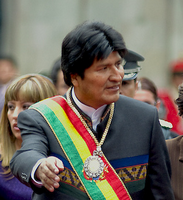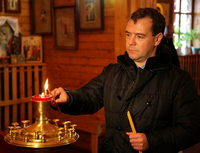A recent visit to China by Kazakh President Nursultan Nazarbayev resulted in deals that further expanded China’s extensive energy and infrastructure investments in the Central Asian country. In an e-mail interview, Niklas Swanström — director of the Institute for Security and Development Policy and executive director of ISDP’s Central Asia-Caucasus Institute and its Silk Road Studies Program — discussed China-Kazakhstan relations. WPR: What is driving the recent expansion of China-Kazakhstan trade relations, on both sides? Niklas Swanström: The most obvious factor behind the expansion is China’s willingness and ability to invest in economies in the region, particularly in energy-rich Kazakhstan. […]
Latest Archive
Free Newsletter
The Middle East Institute recently presented a lecture and discussion with Andrew Exum, Fellow at the Center for A New American Security, assessing the possibility of a new Taliban insurgency in Afghanistan and its ramifications for U.S. strategy there. The below video is the first of several parts of Exum’s talk. Additional parts can be found at the Middle East Institute. A related World Politics Review interview with Exum conducted as part of WPR’s special report on the Afghanistan war can be found here.

Last week’s nationwide protests by Bolivian bus drivers were the latest in a series of demonstrations that have become a massive administrative and political headache for Bolivian President Evo Morales. Bolivians have developed a growing list of grievances against the beleaguered leader and are taking them to the streets — as well as to the mines and railways — across the country with greater frequency in 2011. Since winning re-election by a landslide in December 2009, Morales has been under mounting pressure from both ends of the spectrum of Bolivian society — the wealthier elites in the east and the […]
With the Russian government having assumed an increasingly aggressive posture regarding the country’s territorial dispute with Japan in recent months, the question naturally arises, Why? Senior Russian leaders including President Dmitry Medvedev and Defense Minister Anatoly Serdyukov have broken with precedent and visited what the Russians call the Southern Kurils and what the Japanese label their Northern Territories. The Russian government has also announced plans to enhance the islands’ socio-economic development and defenses. The escalating crisis led the counselor for European Affairs at the Japanese Foreign Ministry to characterize the Russian-Japanese relationship last week as being at its lowest point […]

With the Russian government having assumed an increasingly aggressive posture regarding the country’s territorial dispute with Japan in recent months, the question naturally arises, Why? Senior Russian leaders, including President Dmitry Medvedev and Defense Minister Anatoly Serdyukov, have broken with precedent and visited what the Russians call the Southern Kurils and what the Japanese label their Northern Territories. The Russian government has also announced plans to enhance the islands’ socio-economic development and defenses. The escalating crisis led the counselor for European Affairs at the Japanese Foreign Ministry to characterize the Russian-Japanese relationship last week as being at its lowest point […]
